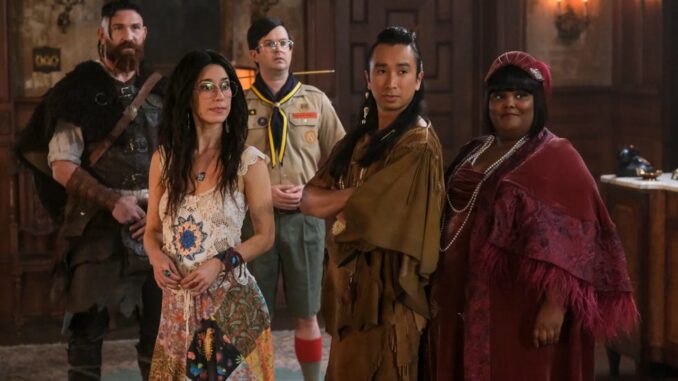
The collective memory of a nation is a curious, tender thing, often less a precise record and more a warmly lit gallery of shared comforts. And among the most cherished exhibits in that gallery, for generations of Britons, are the classic BBC sitcoms. They are the background hum of childhoods, the glue of family evenings, the source of catchphrases that burrowed deep into the national lexicon. They are, in essence, a certain type of home.
Imagine, then, the original, a show that wasn't just television; it was a warm mug of tea on a cold day, a familiar armchair by a crackling fire. Its characters were idiosyncratic, flawed, yet utterly real, their foibles and triumphs playing out in a world that felt tangible, lived-in. The humour wasn't just jokes; it was a gentle observation of humanity, delivered with a warmth that radiated from the cathode ray tube. The live studio audience's laughter wasn't a canned track; it was a communal sigh of recognition, a shared communion. It belonged to us, woven into the fabric of our national folklore.
Then came the first whispers of a remake. A collective gasp rippled through the digital ether, quickly followed by a tremor of dread. Why tamper with perfection? When it eventually arrived, it often felt like a fever dream, a blasphemous echo. Characters spoke the same lines, yet the cadence was off, the timing askew, like a beloved melody played by a band that had never quite grasped its soul. The familiar sets, once cosy, felt sterile, the vibrant personalities flattened into caricatures. It was a crude Photoshop filter applied to a masterpiece, a disjointed cover band attempting to recreate the magic of The Beatles. For many, it wasn't just bad; it was an unnecessary violation, a commercial entity attempting to commodify nostalgia without understanding its delicate essence. The initial series, predictably, met with a tepid, often hostile, reception.
But now, years later, the ghost ship sails again. This time, there's no fanfare, no aggressive marketing campaign, no prime-time slot. It just… appeared. Slipped into the digital ether of a UK streamer, an unmarked door in the vast, labyrinthine mansion of on-demand content. It wasn't heralded by a splash screen, nor did it elbow its way into trending topics. It was a whisper in the void, a silent deployment by algorithms alone, presumably based on some cold, data-driven calculation that suggested a minimal, perhaps forgotten, audience still existed for this particular brand of spectral presence.
This quiet dropping speaks volumes. It speaks of a lack of confidence, a tacit acknowledgement that this venture isn't meant for grand public consumption but for a niche, perhaps curious, perhaps masochistic, segment of subscribers. It’s an almost apologetic release, a corporate shrug. It lacks the brazen arrogance of the original remake's launch, replaced by a stealthy, almost embarrassed, re-entry.
And the audience's reaction? It's as muted as the launch itself. There’s no communal gasp, no widespread outrage. Instead, a quiet sigh, a digital shrug. Some might stumble upon it, scroll past, or perhaps, with a morbid curiosity, click play for a few minutes, only to confirm what they already suspected: the magic remains elusive. It’s a confirmation of the unrecapturable, a testament to the fact that lightning rarely strikes twice in the same bottle, especially when the bottle has been mass-produced and stripped of its unique imperfections.
This scenario, this divisive remake quietly dropping new episodes on a streamer, is a poignant symptom of our current cultural moment. It highlights the tension between the enduring power of classic art and the relentless churn of content creation. It underscores the commercial imperative to exploit intellectual property, often at the expense of artistic integrity or fan sentiment. And perhaps most importantly, it reflects the fragmentation of the viewing experience. There's no water cooler chatter about this quiet return, no shared national experience. It exists in individual screens, in private consumption, a pale echo of the communal laughter and warmth it once inspired. The original will live on, enshrined in memory and on endlessly repeated reruns, while its pale imitator, like a digital ghost, drifts silently in the background, a reminder that some things, once truly beloved, are best left untouched, preserved in the amber of nostalgia.